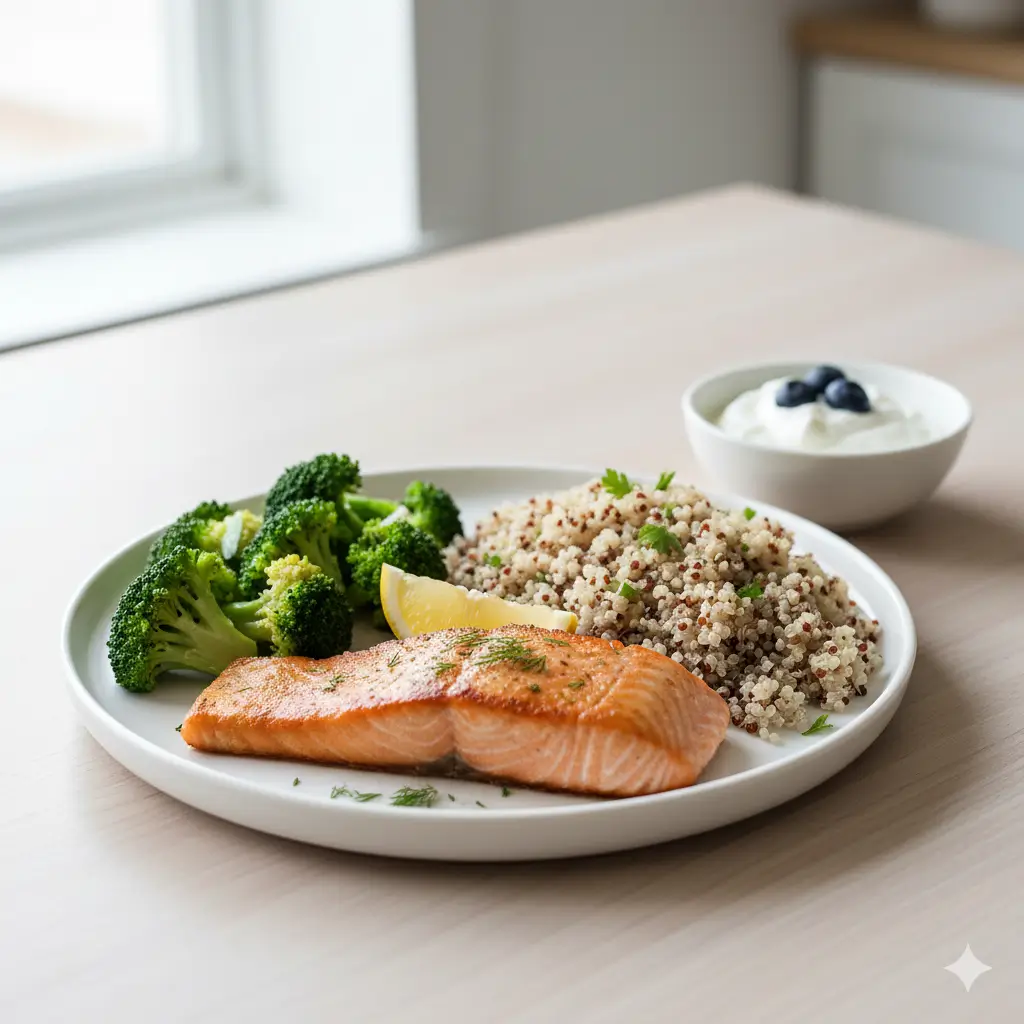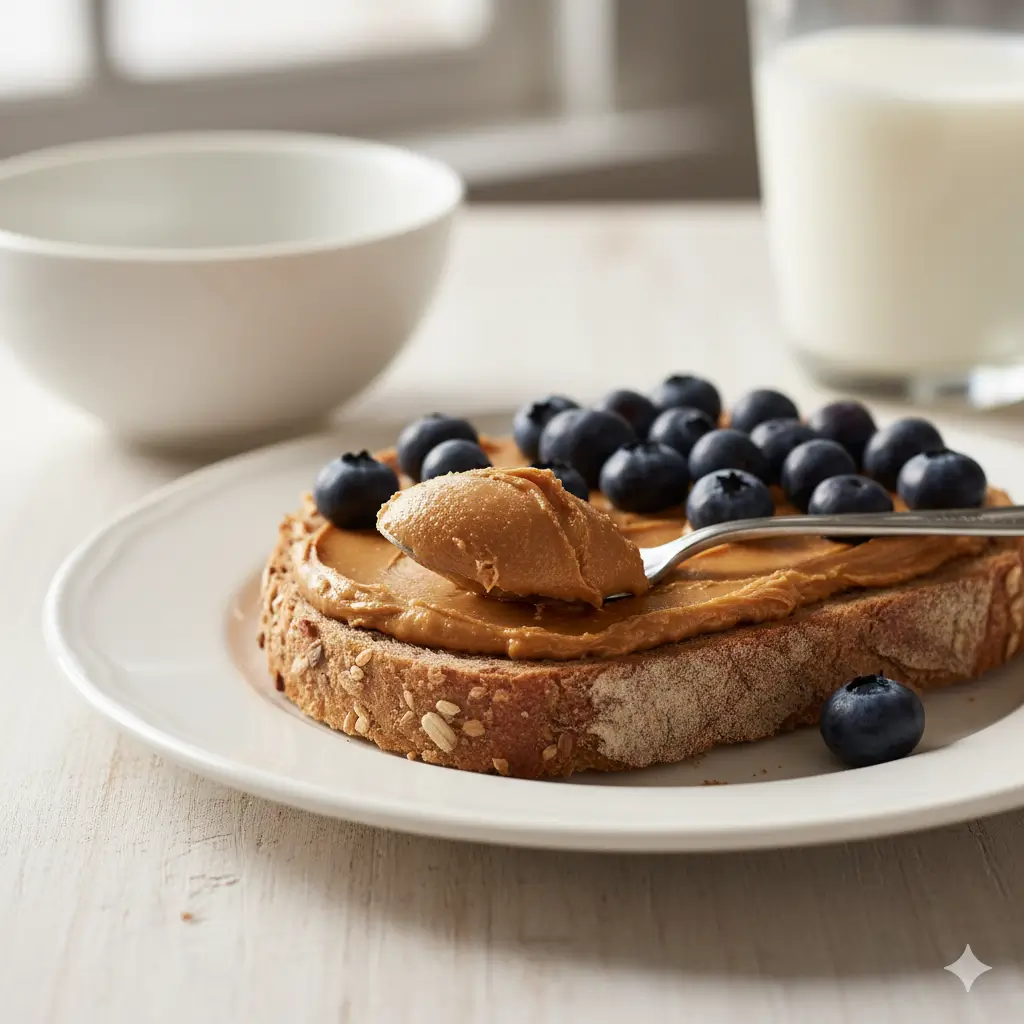How to Boost Metabolism After 40: Women’s Guide

If you’ve hit your 40s and noticed that the same foods and workouts don’t give you the same results, you’re not imagining it. Learning how to boost metabolism after 40 is key, because many women tell me, “I eat less than I did in my 30s, but my weight still creeps up.” The reason often comes down to metabolism—and its impact on overall health and energy.
The good news? Your metabolism isn’t broken—it just needs the right fuel, movement, and lifestyle tweaks to start working with you again. Let’s break down how to boost metabolism after 40 in a way that’s practical and doable.
Why Metabolism Slows Down After 40
Your metabolism is the engine that burns calories to keep your body running. After 40, a few changes make that engine run a bit slower:
- Muscle loss – Unless you’re lifting weights, you lose 3–5% of muscle tissue each decade. Less muscle means fewer calories burned at rest.
- Hormonal shifts – Declining estrogen, progesterone, and thyroid activity can make weight gain—especially belly fat—more common.
- Lifestyle changes – Busy schedules, less sleep, and higher stress all impact your metabolic health.
Studies show that older adults experience a gradual decline in metabolic rate, which makes it harder to burn more calories without changing habits. This isn’t just about weight—it also affects quality of life and raises the risk of health problems like high blood pressure and insulin resistance. Research from Harvard Health shows metabolism naturally slows with age
Best Foods to Boost Metabolism After 40
Food can be your best ally. Certain choices naturally support metabolism while keeping hormones in balance.
High-Protein Foods

Protein has the highest thermic effect of food—meaning your body burns more calories digesting it compared to carbs or fats. It also offers multiple health benefits beyond weight management. Protein supports the immune system and nervous system while helping preserve lean mass.
Great options:
- Eggs or Greek yogurt at breakfast
- Chicken, turkey, or lentils for lunch
- Fish, beans, or tofu for dinner
Most women over 40 do well aiming for about 1.2–1.6 grams of protein per kilogram of body weight each day—think of it as a palm-sized portion of protein at each meal.
Whole Grains & Fiber-Rich Foods
Swap refined carbs for:
- Quinoa, oats, brown rice
- Beans, lentils, leafy greens
- Berries and apples
These provide a wide range of nutrients while supporting gut health.
Healthy Fats

Don’t fear fats—choose wisely.
- Avocados, olive oil, fatty fish
- A spoonful of peanut butter in your oatmeal or smoothie
These healthy fats stabilize hormones and improve satiety.
Metabolism-Boosting Drinks
- Water: Staying hydrated helps increase your metabolic efficiency.
- Green tea/oolong tea: Contains catechins that support fat oxidation.
- Coffee (in moderation): Caffeine gives a short-term calorie burn.
Foods to Avoid
- Sugary drinks
- Highly processed snacks
- Extreme crash diets (they slow metabolism further)
Exercise Strategies to Fire Up Your Metabolism
I can’t stress this enough—exercise is about more than calorie burn. It’s about preserving lean muscle tissue and hormonal balance.
Strength Training After 40
Research shows that resistance training helps maintain lean mass, which means you’ll continue to burn more calories even when resting. Two to three sessions per week of:
- Squats, lunges, push-ups
- Dumbbell rows or presses
- Resistance bands, if you’re starting
Even 20 minutes makes a difference. When I started strength training just twice a week, my energy picked up and fat loss finally felt manageable—without extreme dieting.
Cardio for Metabolism

Cardio helps, but the type matters:
- HIIT (High-Intensity Interval Training): Great for a short-term calorie boost.
- Steady-state cardio: Walking, cycling, swimming—great for endurance and overall health benefits.
The best results come from combining both.
Daily Movement
Don’t overlook everyday movements:
- Aim for 10,000 steps a day
- Choose stairs when you can
- Take short stretch breaks during desk work.
These small actions protect overall health and keep energy up.
Hormones, Sleep, and Stress: The Hidden Metabolism Factors

Menopause & Perimenopause Effects
Hormonal changes affect how your body stores fat. Many women notice more belly fat after 40 due to lower estrogen. Strength training, higher protein intake, and healthy fats help balance this.
The Cortisol Connection
Chronic stress raises cortisol, which encourages fat storage around the belly. It also links to health conditions like high blood pressure. Practices that help:
- Yoga or meditation
- Deep breathing before bed
- 10-minute outdoor walks
Sleep & Recovery
Studies show that poor sleep disrupts ghrelin and leptin, the hormones controlling hunger. That makes it harder to lose weight and weakens the immune system. Aim for 7–8 hours of quality sleep each night.
Supplements That May Support Metabolism After 40
Supplements aren’t magic, but they can fill gaps:
- Vitamin B12 – helps convert food into energy and supports the nervous system.
- Magnesium – supports sleep, stress relief, and metabolism.
- Omega-3s – support brain health, reduce inflammation, and improve overall health
- Green tea extract/caffeine – provides mild, short-term boosts
It’s best to check with your doctor before starting supplements, especially if you’re navigating perimenopause or taking medications.
Sample 1-Day Meal Plan to Boost Metabolism After 40
Here’s how a balanced day could look:
- Breakfast: 2 boiled eggs + oatmeal with berries + a spoonful of peanut butter + green tea
- Snack: Greek yogurt with chia seeds
- Lunch: Grilled salmon + quinoa + roasted broccoli (a wide range of nutrients)
- Snack: Almonds and an apple
- Dinner: Chicken stir-fry with brown rice and mixed veggies
- Drinks: Water, herbal tea, black coffee (optional)
FAQs on Boosting Metabolism After 40
By building muscle, eating enough protein, staying active daily, and prioritizing sleep and stress management.
Sugary drinks, crash diets, and processed foods are common culprits.
Yes, but with the right combination of strength training, protein, and healthy lifestyle habits, weight loss is possible and brings significant health benefits.
Hormonal changes, reduced muscle tissue, poor sleep, and chronic stress all play a role.
Some may help, but the bottom line is that diet, exercise, sleep, and stress control do most of the heavy lifting.
Final Thoughts
Learning how to boost metabolism after 40 isn’t about shortcuts. It’s about daily habits that keep your body strong and resilient. Build muscle, fuel with protein and healthy fats, stay hydrated, and manage stress.
The bottom line is simple: stay consistent and you’ll gradually increase your metabolism, burn more calories, and enjoy better energy and quality of life. Even small steps—like adding protein to breakfast or walking after dinner—make a difference.